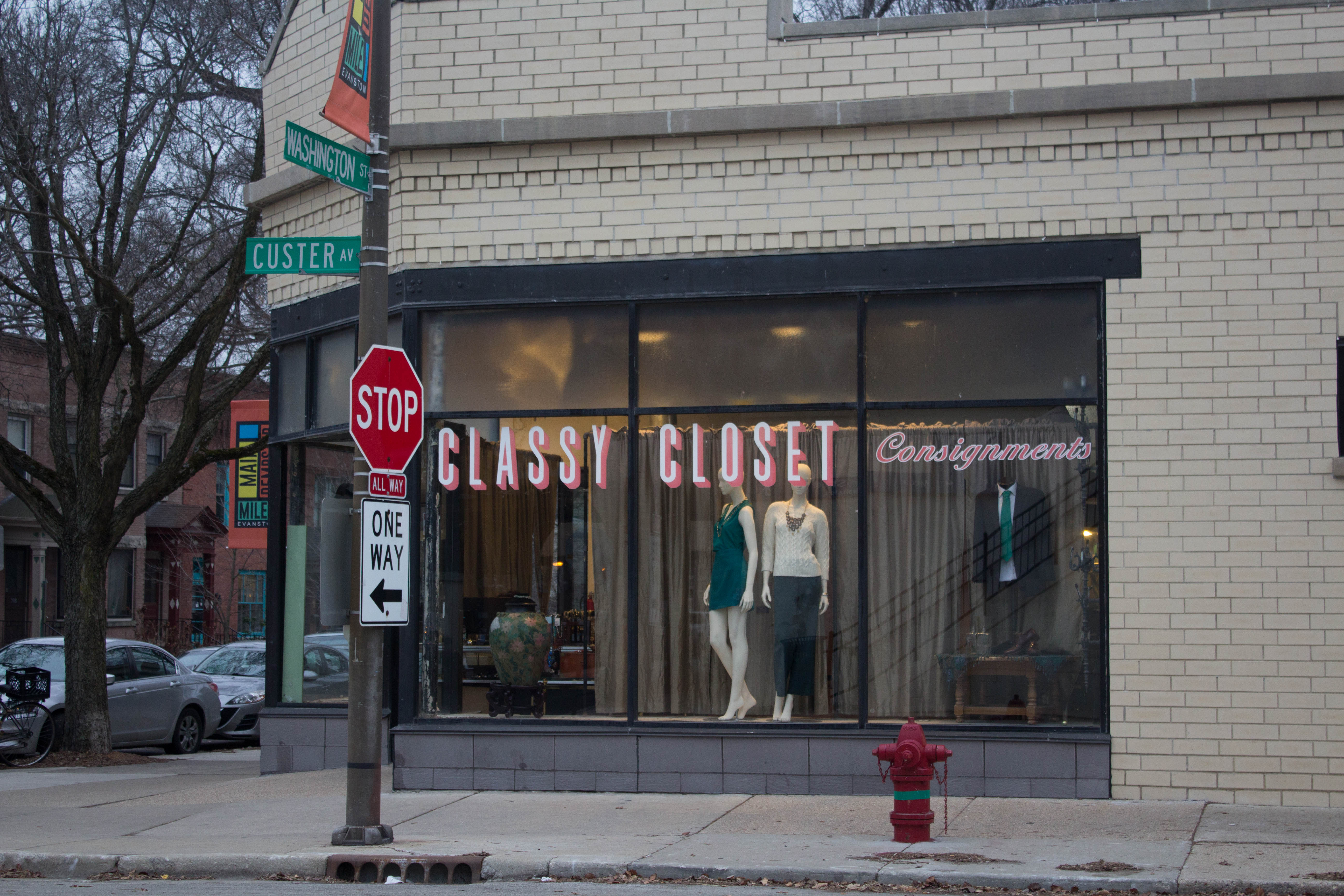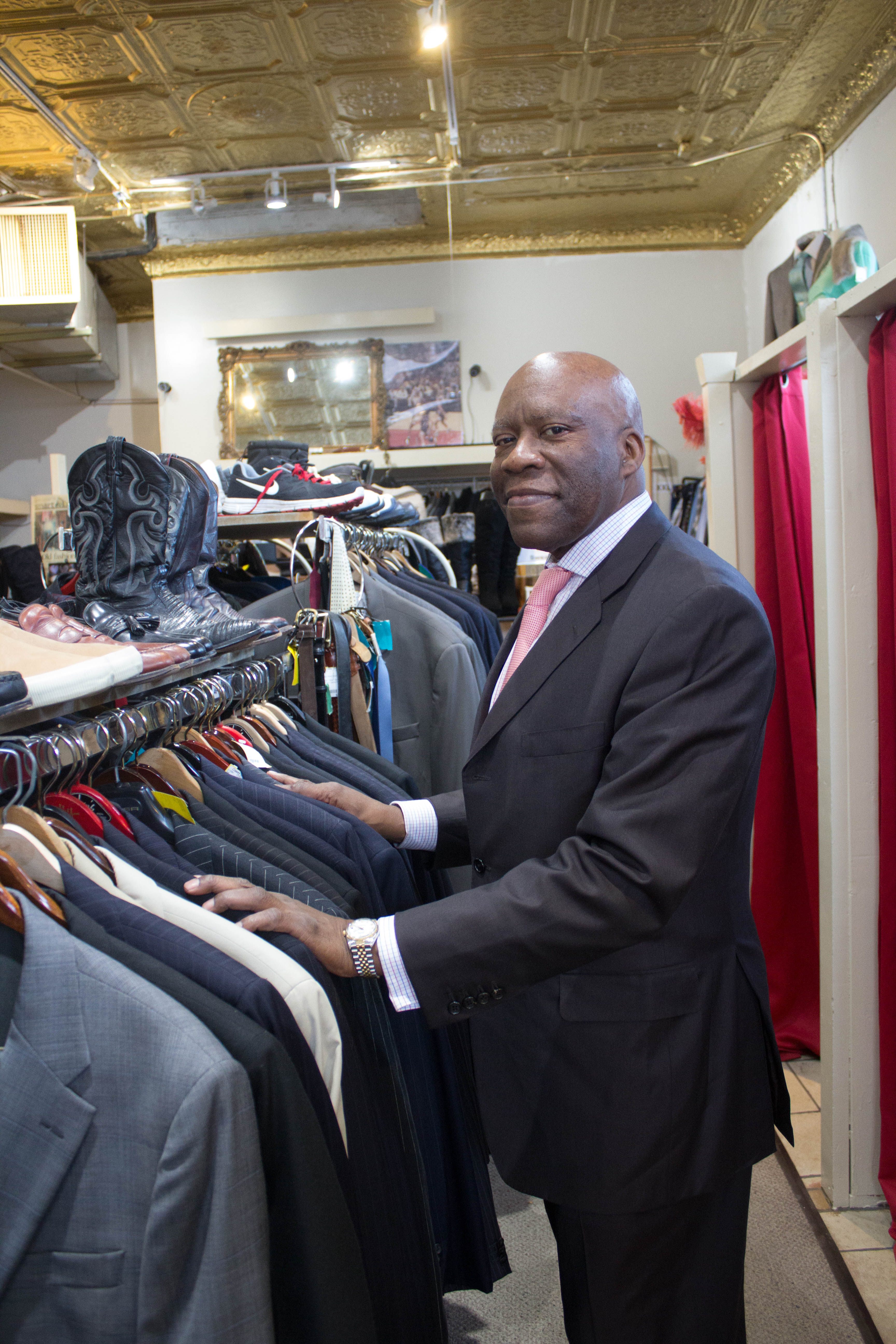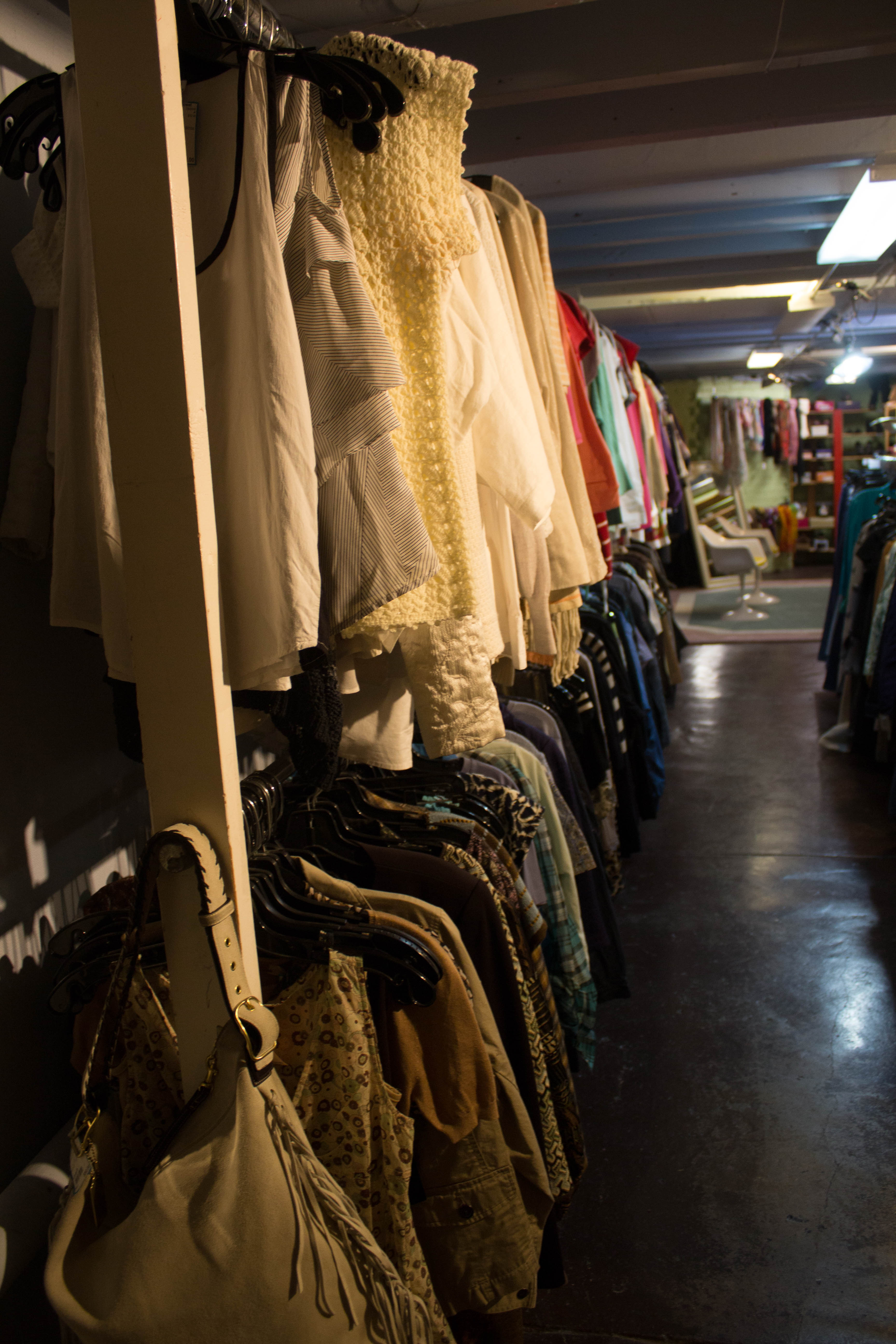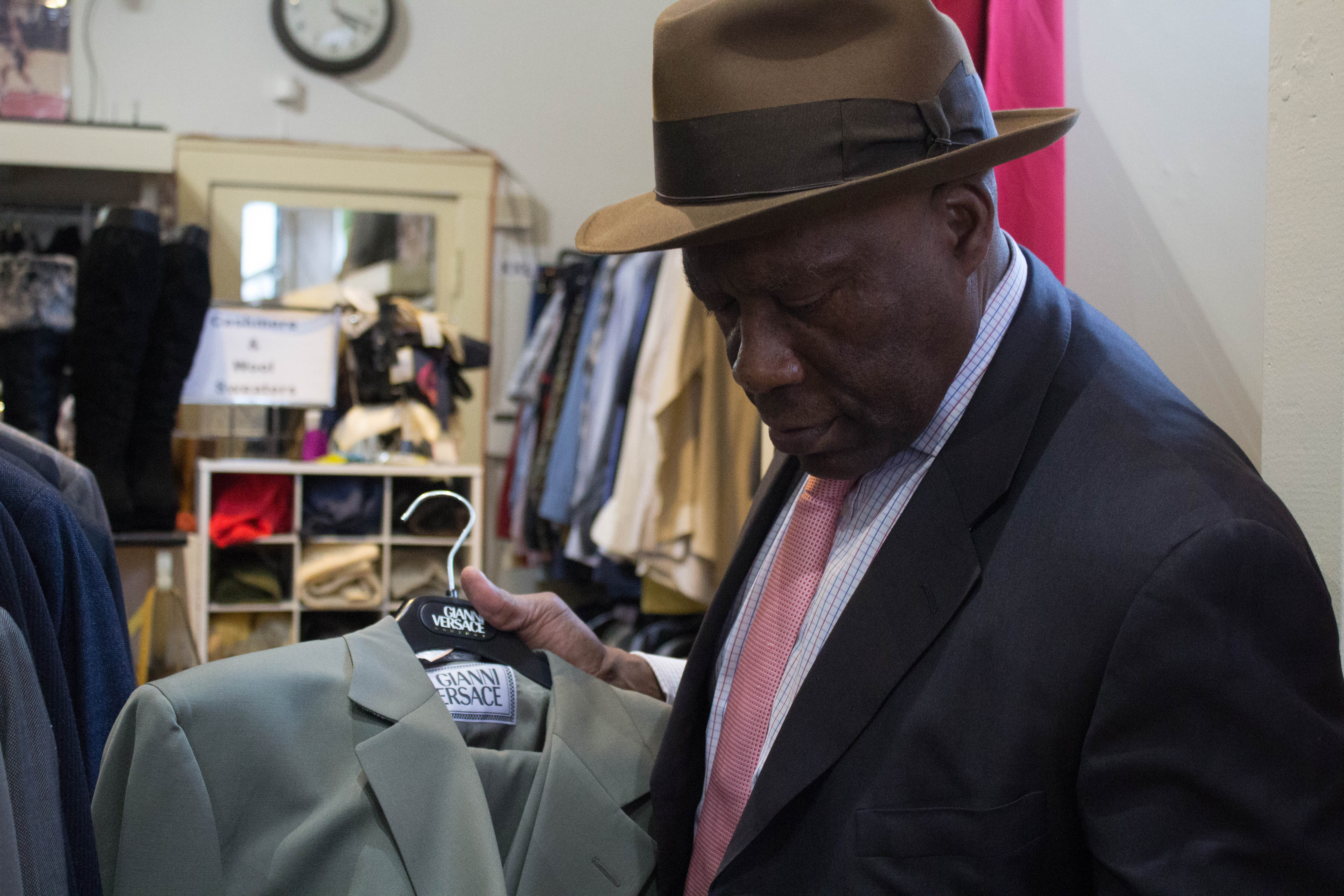Poppin' tags
Classy Closet owner Emanuel Wilder has taken a long and winding road to his current career.
By Caroline Vakil
A retro red and white typeface flaunts ‘60s-era flair – “Classy Closet” – across the windows of this Evanston thrift shop. In the front display, one mannequin wears a blouse and a calf-length ‘50s plaid skirt. The mannequin opposite dons an early 2000s bodycon dress that forms to the shape of her fake little derriere. “Superstitious” by Stevie Wonder and Ella Fitzgerald’s “Misty” play back-to-back.
Classy Closet stands at the corner of Custer Avenue and Washington Street in South Evanston. Open the door, and you’re greeted by the jingle of chimes and the scratch of hangers. If you know where to look, you’ll find discounted J. Crew sweaters, Eileen Fisher cardigans, Ralph Lauren jeans and Nike shoes. But if you look past that, you’ll find store owner Emanuel Wilder in a full pantsuit complete with cowboy hat, handkerchief and cowboy boots, sitting behind a desk covered with boots and purses.

In 1981, Wilder used to be just a loyal customer at the shop, then called Crowded Closet. The sister store to its main location on Dempster Street, Crowded Closet was considered the “dumping ground” for menswear and clothes that didn’t sell. He frequented the store so much that when previous owner Noel Coker was ready to sell the shop, her employees told Wilder to call Coker for a quote. The price was right, and he bought the shop.


Wilder likes to tell stories, and how he came to own Classy Closet is one of his favorites. But he has lots of other stories, and they are not all as uplifting. Jump back a couple decades in Wilder’s life, and the story is much different.
Growing up in the '60s and early '70s as a Black man in rural Alabama, Wilder says he fought for an education and worked his body to the bone for eight hours a day on a cotton plantation. Conditions on the plantation were harsh. Temperatures reached 90 degrees and people received $2 per 100 pounds of cotton, which usually took a day’s work to collect. However, his experience in the fields instilled in him a strong work ethic, an interest in fashion from having to make his own clothes and dreams of leaving the plantation behind.

“We lived off the fat of the land,” he says. The clothes he wore as a child often had to last him a few days before his family could do laundry, which meant wearing the same outfit more than once. It’s antithetical to Wilder today, who wouldn’t be caught dead wearing the same outfit twice – he cycles through high-end brands like Brioni Purple Label, Kiton and Oxford, which retail for upwards of $5,000.
Plantation life also propelled Wilder to move out of Alabama and escape miserable conditions. After attending college and teaching in Alabama, Wilder visited Chicago for the first time in the summer of 1975 and never looked back.
Chicago afforded Wilder more opportunities. After becoming a part-time GED instructor for the City Colleges of Chicago, he landed a job as a public service administrator with the Illinois Department of Public Health. In 1980, one of his coworkers introduced him to resale shopping – something Wilder had never done before – at Crowded Closet.
After Wilder bought the store in 2003, he instituted a major clean-up, organizing past inventory and finding better merchandise. Wilder took out the lower-end merchandise that wasn’t selling, brought in more designer brands and revamped the spirit of the store, which previously felt dingy and dirty.

“He loves men’s fashion, he loves putting an outfit together and using fashion as a way to stand out,” supervising manager Kim Ortiz says. “He approaches his business from a place of love.”
Wilder has come a long way from the plantations of Alabama, creating a life in which he says every day brings new promise.
“I meet a lot of people, and since I’m retired it gives me something to do everyday,” he says. “I like the stuff people bring in – You never know what you’re going to be getting from day to day.”
